Safe Homemade Baby Food Tips
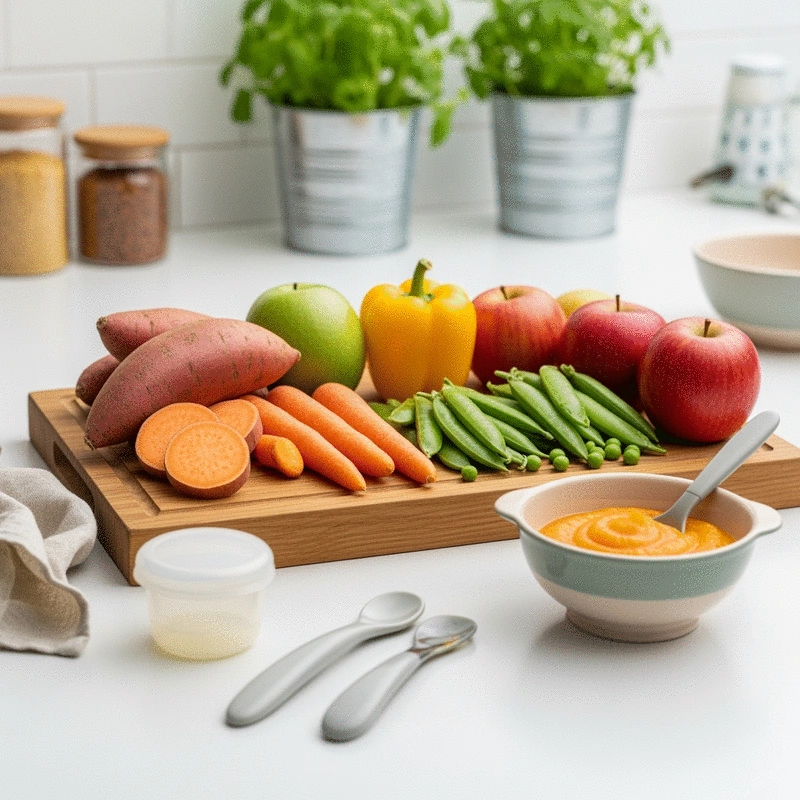
What if I told you that making your own baby food could not only save you money but also give you total control over your child’s nutrition? The journey into homemade baby food is not just about convenience; it's about fostering a healthy future for your little one.
What You Will Learn
- How homemade baby food allows for control over ingredients and preparation methods.
- The ability to customize flavors and textures to suit your baby's preferences, enhancing mealtime enjoyment.
- Key food safety protocols to protect your baby from foodborne illnesses while preparing homemade meals.
- Nutritional advantages of homemade baby food, including better nutrient optimization and allergen awareness.
Why Homemade Baby Food? Benefits & Safety Protocols
Understanding the advantages and essential safety measures for preparing your baby's food at home.
Benefits of Homemade Baby Food
- Control ingredients (fresh, organic)
- Customize flavors & textures
- Reduced costs (vs. commercial)
- Ensures freshness & quality
- Better nutritional content
- Monitor potential allergens
Key Food Safety Protocols
- Wash hands thoroughly before handling food
- Clean & sanitize all equipment (blenders, bowls)
- Properly store food (refrigerate/freeze immediately)
- Check freshness of ingredients (fruits, veggies)
- Cook foods to appropriate temperatures
- Wash fruits & vegetables thoroughly (pesticides)
Understanding the Importance of Homemade Baby Food Safety
As a parent, the safety of our little ones is always a top priority. When it comes to their nutrition, homemade baby food is an excellent choice. It allows us to control ingredients, ensuring that what we serve is both safe and nutritious. But why should we favor homemade over store-bought options? Let's explore this together!
Choosing homemade baby food means you can handpick fresh, organic ingredients, which can significantly reduce exposure to preservatives or additives often found in commercial products. Plus, knowing exactly what goes into your baby’s food is incredibly empowering for parents. It fosters a deeper connection to your child’s eating habits—something I believe is so important! For more detailed guidance, consider our homemade baby food recipes guide.
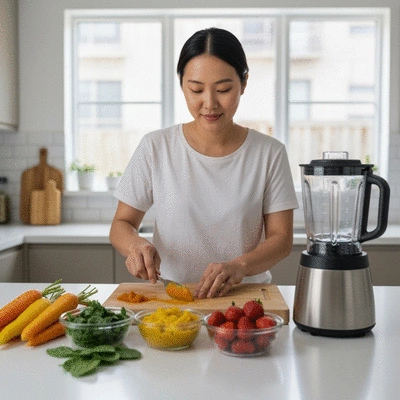
Why Choose Homemade Baby Food Over Store-Bought?
- Control over ingredients and preparation methods
- Ability to customize flavors and textures for your baby's preferences
- Reduced costs compared to buying commercial baby food
- Ensuring freshness by preparing food at home
The benefits of making your own baby food really stack up! You not only save money but also get the satisfaction of making something nutritious from scratch. And let’s not forget the fun you can have experimenting with flavors. What has been your favorite recipe so far?
Key Safety Concerns: Protecting Your Baby from Foodborne Illness
Food safety is essential, especially when it comes to our little ones. Homemade baby food can be safe, but we must be mindful of key safety concerns. It’s crucial to wash all fruits and vegetables thoroughly to remove any pesticides. Additionally, be sure to cook foods to the appropriate temperatures to eliminate harmful bacteria. You can find more tips on choosing safe baby food here.
Another aspect to consider is proper storage. Homemade baby food should be refrigerated or frozen right after preparation to avoid bacterial growth. I recommend dedicating a specific area in your fridge for your baby’s food—it helps keep things organized and safe!
Understanding the Nutritional Value of Homemade Baby Food
One of the greatest advantages of homemade baby food is the ability to optimize nutritional content. When we make baby food ourselves, we can introduce a variety of ingredients packed with vitamins and minerals. This can set a strong foundation for our children’s health.
Using a mix of fruits, vegetables, and grains, we can create balanced meals tailored to our baby's age and dietary needs. Have you ever looked at the nutritional labels on store-bought baby food? Sometimes, making our own can lead to better nutrition without the extra sugars and fillers.
Pro Tip
To maximize the nutritional value of your homemade baby food, consider incorporating a variety of colors on your plate! Each color represents different nutrients that can benefit your baby's growth and development. For example, orange foods like sweet potatoes are rich in beta-carotene, while green foods like spinach provide iron. Mixing colors not only enhances the visual appeal but also ensures a well-rounded diet for your little one.
Summarizing Key Insights for Safe Homemade Baby Food Preparation
As we wrap up our discussion on homemade baby food, it's essential to emphasize the crucial role that food safety protocols play in protecting your little one. When preparing homemade baby food, the safety of ingredients and preparation practices directly impacts your child's health. By following proper guidelines, you can enjoy peace of mind knowing you are providing the best nutrition for your baby!
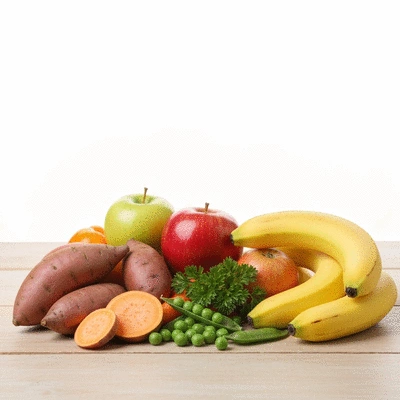
Let's remember that homemade baby food is not just about convenience; it’s about taking control of what your child eats. By embracing the benefits of making food at home, you offer fresh, delicious, and tailored meals that cater to your baby's needs and preferences. Are you ready to embark on this exciting journey?
Reviewing the Importance of Food Safety Protocols
- Wash your hands before handling food.
- Ensure all equipment is clean and sanitized.
- Store food properly to avoid spoilage.
- Always check the freshness of ingredients before use.
By adhering to these simple yet effective practices, you can significantly reduce the risk of foodborne illnesses. Remember, a safe kitchen is the first step toward a healthy feeding experience for your little one!
FAQs About Homemade Baby Food
Q1: What are the main benefits of making homemade baby food?
A1: Homemade baby food allows for total control over ingredients, customization of flavors and textures, reduced costs compared to commercial options, and ensures freshness and better nutritional content. It also helps parents monitor potential allergens more closely.
Q2: What are the essential food safety protocols for preparing homemade baby food?
A2: Key safety protocols include thorough hand washing, cleaning and sanitizing all equipment, proper storage (refrigerating or freezing immediately), checking the freshness of ingredients, cooking foods to appropriate temperatures, and thoroughly washing fruits and vegetables.
Q3: How does homemade baby food support a baby's nutritional needs?
A3: Homemade baby food optimizes nutritional content by allowing parents to use fresh, organic ingredients packed with vitamins and minerals. It also enables the creation of balanced meals tailored to a baby's age and dietary needs, often without the added sugars and fillers found in some store-bought options.
Q4: Can making homemade baby food save money?
A4: Yes, making baby food at home can significantly reduce costs compared to repeatedly purchasing commercial baby food products.
Q5: How can I ensure my baby likes homemade food?
A5: Customizing flavors and textures to suit your baby's preferences can enhance mealtime enjoyment. Experimenting with a variety of fruits, vegetables, and grains can also help introduce new tastes and foster healthy eating habits.
Encouraging Parents to Embrace the Benefits of Homemade Options
Homemade baby food not only allows you to control ingredients but also lets you instill healthy eating habits from an early age. Choosing fresh fruits and vegetables means your baby gets the best nutrients available, and experimenting with flavors can make mealtime fun and exciting! Plus, it’s a wonderful way to introduce your baby to new tastes. For another perspective, read about homemade or store-bought baby food.
Are you excited to explore homemade options? Engaging with various recipes can boost your confidence in the kitchen and help your baby develop a love for wholesome foods!
Highlighting Health Benefits of Homemade Baby Food
There are numerous health benefits associated with homemade baby food. Here are some of the most significant:
- Better Nutrition: Homemade baby food allows you to use fresh and organic ingredients.
- Customizable Recipes: You can adjust flavors and textures based on your baby's preferences.
- Allergy Awareness: Preparing food at home helps you monitor potential allergens.
- Cost-Effective: Making food at home can be more budget-friendly than buying pre-packaged options.
These benefits are just the tip of the iceberg! By choosing homemade options, you’re setting your child up for a lifetime of healthy eating habits.
Recap of Key Points
Here is a quick recap of the important points discussed in the article:
- Homemade baby food allows for control over ingredients, reducing exposure to preservatives.
- Key safety protocols include washing hands, sanitizing equipment, and proper storage.
- Homemade options offer better nutrition and customizable recipes tailored to your baby’s needs.
- Engaging with various recipes can enhance your confidence in the kitchen and make mealtime enjoyable.
Popular Posts
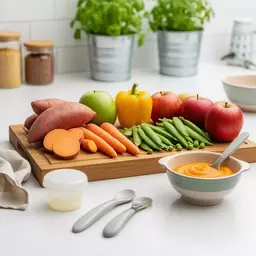 What if I told you that making your own baby food could not only save you money but also give you to
What if I told you that making your own baby food could not only save you money but also give you to
 What if the choice of your baby's food could shape their entire approach to nutrition for life? As y
What if the choice of your baby's food could shape their entire approach to nutrition for life? As y
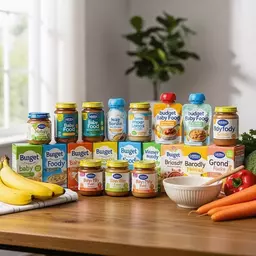 As you navigate the often overwhelming world of baby food shopping, it's essential to arm yourself w
As you navigate the often overwhelming world of baby food shopping, it's essential to arm yourself w
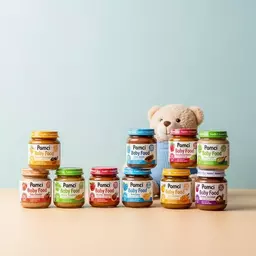 As you embark on the journey of selecting the best baby food for your little one, you might wonder h
As you embark on the journey of selecting the best baby food for your little one, you might wonder h
